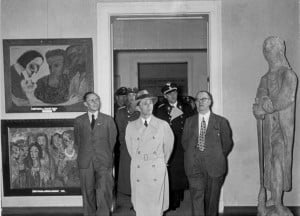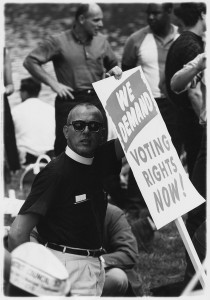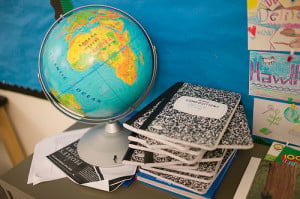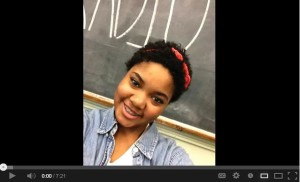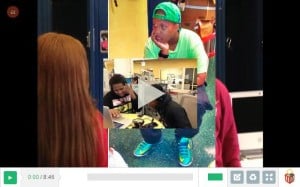As part of Facing History’s revision of our Facing History: Holocaust and Human Behavior resources, we will be making new videos available to you for classroom use. Check out two new series today! Any of these clips would fit well in a flipped classroom exercise.
Julia Rappaport
Recent Posts
Topics: Antisemitism, Video, Holocaust and Human Behavior, Media Skills, Holocaust Education, Flipped Classroom, Facing Technology
What does national identity mean to you?
Topics: Holocaust and Human Behavior, Media Skills, Critical Thinking
In this new video, psychologist Deborah Plummer describes what she calls a "transracial society": "All of us inhabiting the earth [together]." Do we live in a transracial society today? Plummer says no, but offers ideas on how we can get there:
Topics: Safe Schools, Holocaust and Human Behavior, School Culture, Media Skills, Critical Thinking
Nazi Art Discovered: Leading Classroom Discussions on the Role of Art in Nazi Germany
Posted by Julia Rappaport on November 15, 2013
Last week, news broke about the discovery of 1,500 pieces of artwork – art that Nazis had confiscated during World War II. Found in a Munich apartment, the paintings included works by artists Pablo Picasso, Henri Matisse, and Marc Chagall, among others.
Topics: Art, Video, Holocaust and Human Behavior, Innovative Classrooms, Media Skills, Museum Studies, Holocaust Education, Online Learning, Restorative Justice, Flipped Classroom
How Stereotypes Affect Us and What We Can Do: An Introduction to Stereotype Threat
Posted by Julia Rappaport on November 7, 2013
"Stereotypes are one way by which history affects present life," social psychologist Claude Steele says in this video about the history of stereotypes and how negative stereotypes impact us toda
Topics: Safe Schools, Stereotype, Holocaust and Human Behavior, School Culture, Critical Thinking
Next Tuesday is Election Day in the United States. How do we get students to understand that their voice counts – at election time and for the rest of their lives? The multimedia resources in this Facing History toolkit provide a thoughtful introduction to the history of voting, elections, and civic participation in different communities around the globe. From case studies on the Holocaust to films about the civil rights era, each resources reveals profound lessons about participating in democracies and the power of voting.
Topics: Choosing to Participate, Civil Rights
Expanding the Network: Reconnecting with Mentors Via Social Media
Posted by Julia Rappaport on October 10, 2013
Social networks today are our photo albums and address books, our cocktail parties and newspapers. Recently, one of my social networks took on a new function: a virtual classroom.
Topics: Social Media, School Culture, Facing Technology
Facing History in New York, in partnership with WNYC Radio’s Radio Rookies program, helps public high school students develop digital storytelling skills through the Neighborhood to Neighborhood project. Each year, students in the program tackle complex questions about identity, race, education, and crime and violence in their communities. Using interviewing skills and multimedia tools, the students produce original visual and audio pieces. As part of our five-part series introducing their finished pieces, check out this DIY video for ideas on how to report your own story.
Topics: Art, Choosing to Participate, School Culture, Media Skills, Neighborhood to Neighborhood, Facing Technology
Facing History in New York, in partnership with WNYC Radio’s Radio Rookies program, helps public high school students develop digital storytelling skills through the Neighborhood to Neighborhood project. Each year, students in the program tackle complex questions about identity, race, education, and crime and violence in their communities. Using interviewing skills and multimedia tools, the students produce original visual and audio pieces.
Topics: School Culture, Media Skills, Neighborhood to Neighborhood, Critical Thinking, Facing Technology
Facing History in New York, in partnership with WNYC Radio’s Radio Rookies program, helps public high school students develop digital storytelling skills through the Neighborhood to Neighborhood project. Each year, students in the program tackle complex questions about identity, race, education, and crime and violence in their communities. Using interviewing skills and multimedia tools, the students produce original visual and audio pieces.
Topics: Art, School Culture, Media Skills, Neighborhood to Neighborhood, Facing Technology


